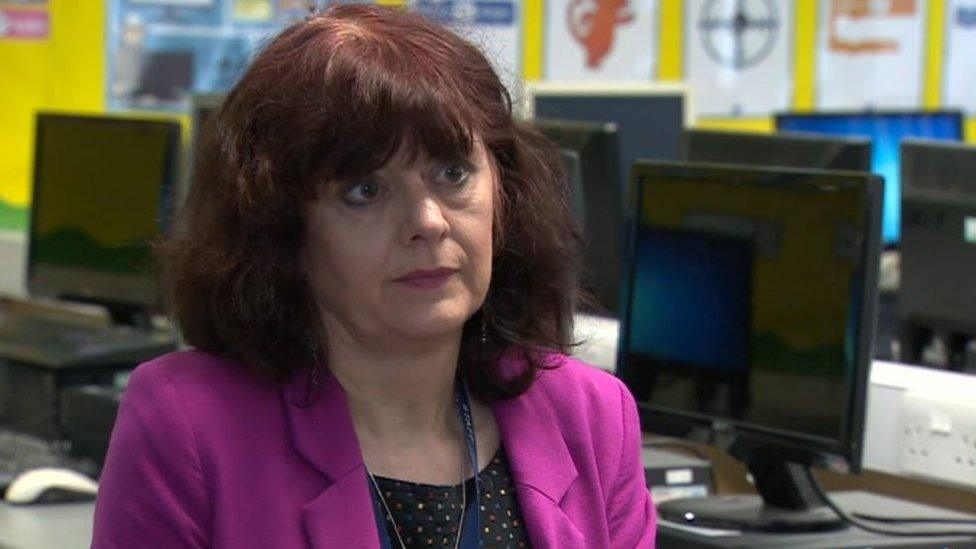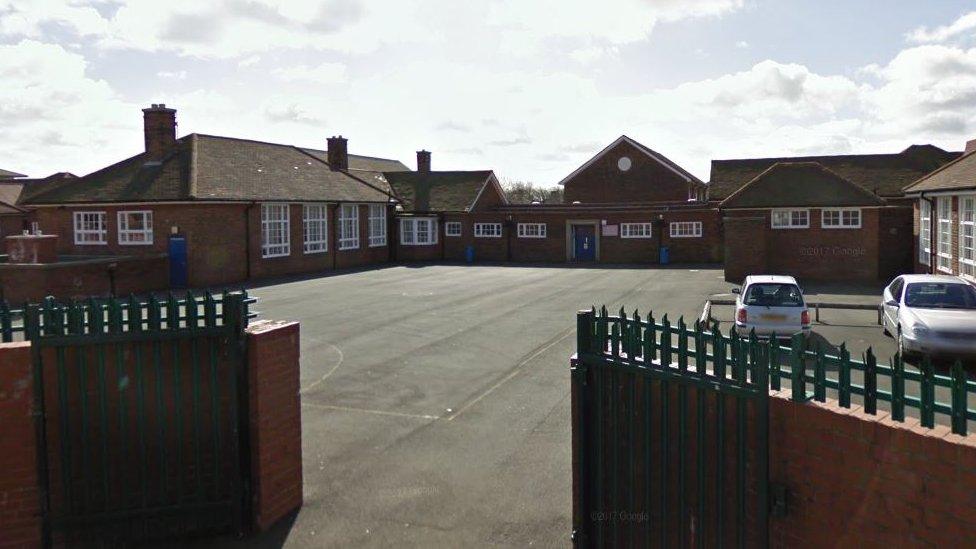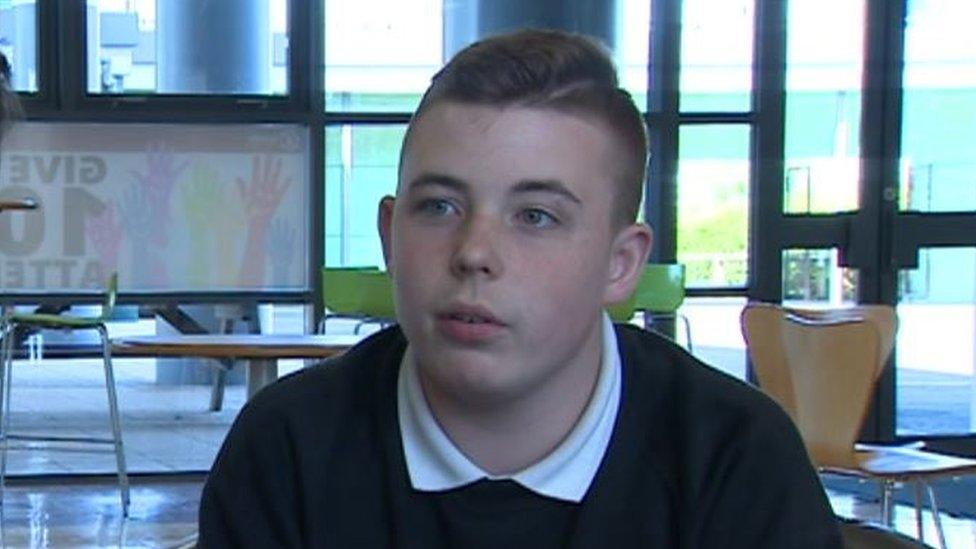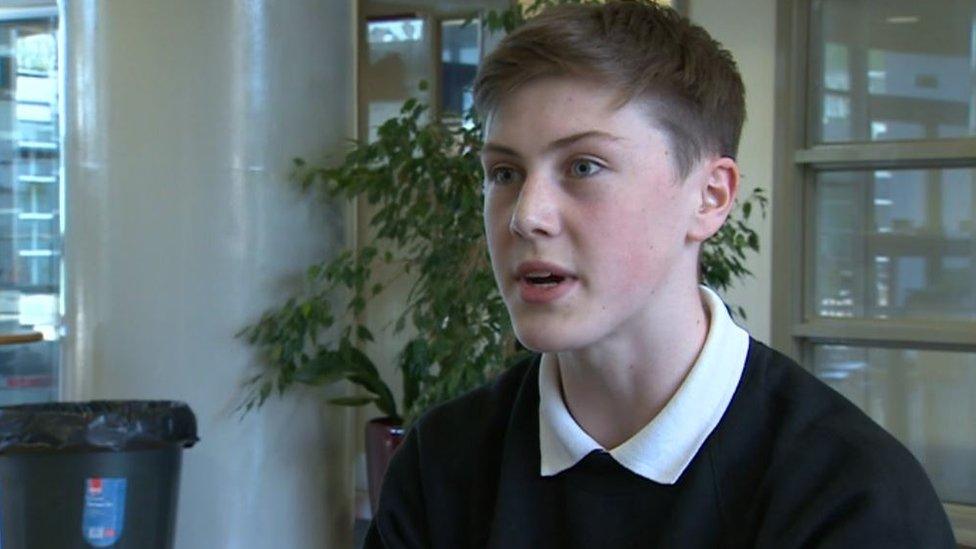School pencil cases banned to stop 'stigma'
- Published

Pauline Johnstone has banned pencil cases at St Wilfrid's Primary School in Blyth
A school has banned pencil cases in a bid to stop pupils from poor families being stigmatised.
St Wilfrid's Primary School in Blyth, Northumberland, said it had taken steps to get rid of any "designer goods".
Head teacher Pauline Johnstone said pencil cases have been banned "so there's no comparison on the tables and children are learning".
St Wilfrid's was among more than 100 schools in a project to stop poorer pupils being stigmatised.
After working with charity Children North East, the school has begun providing stationery and has cut down on the number of dress-up and fundraising days.
"There was a culture within the school, within pupils, that noticed those children who were never in on PE days for example," Ms Johnstone said.
"Part of our uniform policy is a standard backpack so we don't have any designer goods."
She said some parents complained about having to buy certain bags but enough time was left before the rule was fully enforced.

St Wilfrid's Primary School in Blyth took part in the Poverty Proofing the School Day project
The Poverty Proofing the School Day project, led by Children North East, encouraged teachers to look at ways in which some pupils might be unwittingly excluded.
Schools said it has led to higher attendance and better results.
The charity also said "dress-up" days or conversations about "what we did at the weekend" can also penalise those from low-income backgrounds.
It said schools also found more discreet ways of distributing free school uniforms as parents and children were reluctant to approach them directly.

Jason, 14, attends Burnside College which has taken part in the project
Pupils at Burnside College in Wallsend, North Tyneside, said not having the "right stuff" caused "pressure" and could lead to bullying.
Jason, 14, added: "If you don't have the expensive stuff people will call you things like tramp, which isn't right."

You may also like:

Harris, 15, said: "There was a real big issue with some people, it really got to them. There was a really big social expectation to have the best things and it was affecting school life for a lot of people.
"There was groups created around who had the best things but I think that has been taken away. That's not an issue anymore."

Harris, 15, said the pressure to have the best things has been taken away
Children North East has "poverty proofed" schools across Teesside, Tyne and Wear and Northumberland, as well as schools in Grimsby and Brighton which have requested the project.
Chief executive Jeremy Cripps said the project had improved behaviour and helped more pupils take part in extra-curricular activities.
"The government is constantly saying that the way out of poverty is educational achievement and by that they mean doing well in school exams and ideally going on to further education," he added.
"But if you're not engaging with it to start with you really haven't got a chance to take advantage of all that education."
See more on The Politics Show in the North East & Cumbria on BBC1 at 11:00 BST, Sunday 13 May and on the iPlayer for 28 days thereafter.